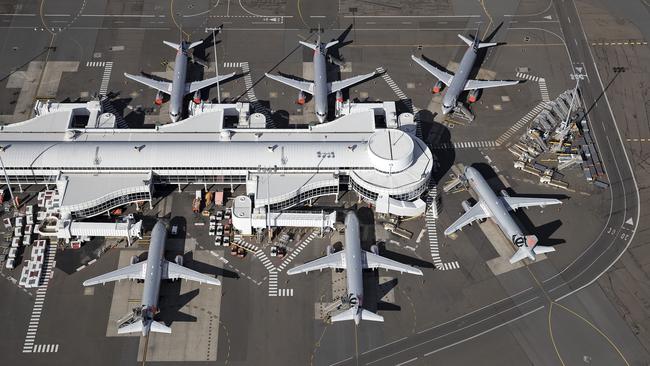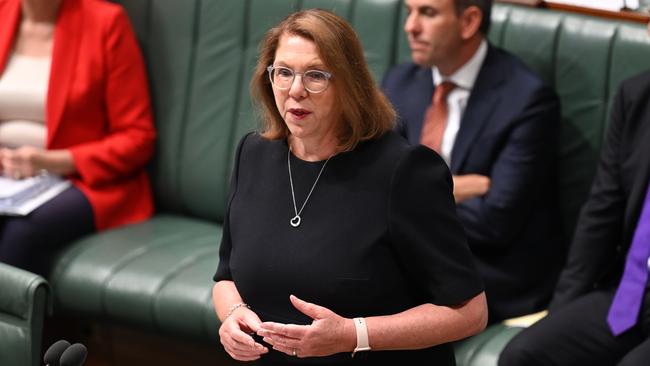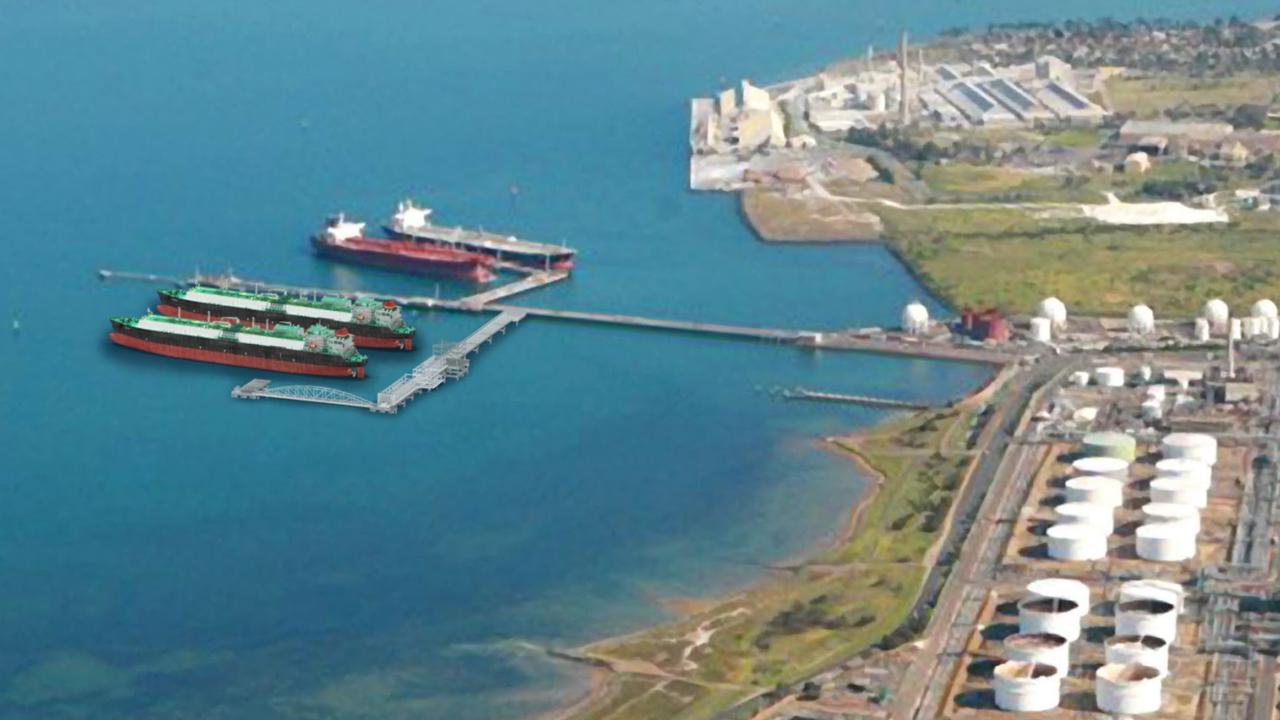Changes to Sydney Airport operations promise more competition, better efficiency
Three years after a review of Sydney Airport was delivered, the government has responded to the relief of airlines and airports.

Business
Don't miss out on the headlines from Business. Followed categories will be added to My News.
The regulatory handbrake on Sydney Airport is being lifted slightly to help ease the problem of flight delays and cancellations after weather events, and improve airline competition.
Transport Minister Catherine King has announced a series of reforms based on the recommendations of former Productivity Commission chair Peter Harris who delivered his review three years ago.
They include a requirement that airlines provide reasons for cancellations and delays to justify the retention of valuable slots at Sydney Airport, with independent audits to be conducted regularly.
Slots are the time windows allocated to airlines to access the airport, with Qantas and Virgin Australia holding the lion’s share of prime time slots.
Ms King said the first such audit would be carried out this year, meaning that any misuse of slots would be uncovered and acted upon as soon as possible.
“This will benefit new entrant airlines wanting to set up new services, crack down on slot misuse and create a more level playing field in slot allocation processes,” said Ms King.
Another change green lit by Ms King, would see hourly flight movements increase from 80 to 85 following disruptions such as storms or strong winds, to help clear any backlog.

She stressed that the change would not see an overall increase in flight movements at Sydney Airport, nor would it mean greater noise impacts for the local catchment, much of which was in the Prime Minister’s Grayndler electorate.
Sydney Airport chief executive Scott Charlton said the gateway was the biggest hub in Australia’s aviation network, which meant when it was disrupted the whole system was severely impacted.
“Every year we have examples of where a two-hour weather disruption leads to dozens if not hundreds of domestic cancellations, and the impacts are still being felt days later,” Mr Charlton said.
“For example, on the first Friday of the July school holidays last year, we had 150 weather-related cancellations, with a further 40 on each of Saturday, Sunday and Monday. Most of the cancellations across the weekend and into Monday were a consequence of Friday’s disruption as the flight cap worked against airlines recovering their schedules.”
He cited a similar experience on Monday this week, when 45 minutes of storm activity led to 50 domestic services being axed.
“In the future with a recovery mechanism, hopefully it won’t be necessary for the airlines to cancel these flights, which is a great outcome for passengers and a great outcome for the efficiency and resilience of Sydney Airport overall,” said Mr Charlton.
Greater transparency of the slot allocation system was also welcomed, with Mr Charlton predicting the changes would ensure landing slots were used as they were intended.
His predecessor Geoff Culbert was frequently critical of Qantas and Virgin Australia for what he called “slot hoarding” or maintaining more slots than actually required to keep out other airlines.
A Qantas spokesman said they believed more transparency would demonstrate that they were making good use of their allocated slots, and put to rest claims of slot hoarding.
“Qantas is operating well over 90 per cent of its allocated slots — above the 80 per cent threshold level that is the global standard for key airports around the world,” said the spokesman.
Virgin Australia was also supportive of the reforms, calling them a “step in the right direction to improve efficiency and competition at Sydney Airport”.
“We supported a number of these changes, including the introduction of a recovery period following severe weather events, in our submission to the Harris Review,” said a Virgin spokeswoman.
“We look forward to receiving more detail and consulting with the federal government about the implementation of these reforms.”
Originally published as Changes to Sydney Airport operations promise more competition, better efficiency





